Role playing in the classroom

T.H.M. Gellar-Goad, Associate Professor of Classics and Zachary T. Smith Fellow
Course: FYS 100: Beware the Ides, Beware the Hemlock: Role playing crisis in ancient Greece and Rome
Number of Students: 20
Term: Fall 2018
Duration: 15 weeks
Instructional Designer: Hannah Inzko, Director of Academic Technology
Question
Why is this role-playing assignment so successful in your course?
Answer
“Part of it is the methodology of the class; the living learning aspect. Students who are partaking in this project all live in the dorm. This dorm becomes a hot house for debate after class. There is something about the closeness and intensity of this learning environment that makes it so successful.”
-T.H.M. Gellar-Goad
Project Description
Beware the Ides, Beware the Hemlock: Reenacting Crisis in Ancient Greece & Rome is an interactive, hands-on introduction to the history, culture, and literature of ancient Greece and Rome. Students will read and discuss some of the most important texts about three turning points in Graeco-Roman history: the return of Athenian popular sovereignty (and the public debate about Socrates) after the rule of the Thirty Tyrants in 403 bce, the conspiracy of Catiline in Rome in 64/63 bce, and the assassination of Julius Caesar in 44 bce. By taking on the persona of a specific historical power-player or of a generic member of a particular subdivision of Greek or Roman society, every student will argue for and negotiate a solution to the historical crisis, in both speech and writing, based on readings, individual research, and class discussion of key texts. These role-play exercises will show students how nuanced and how unpredestined these moments in history were.
Purpose
Students are assigned roles informed by classic texts in the history of ideas. Class sessions are run entirely by students; instructors advise and guide students. The class seeks to draw students into the past, promote engagement with big ideas, and improve intellectual and academic skills.
Learning Goals
- Adopting perspectives of ancient Greeks and Romans
- Debating evidence in valid ways
- Communicating effectively
Role of Academic Technology
Academic Technology recommended Slack, a cloud-based team collaboration tool. Slack allows the user to create channels and add team members for easy communication to take place. This technology provided a robust discussion forum. The role playing game transferred well to the Slack channel, allowing the students to maintain their roles outside of class time.
Technology
Slack engaged students outside of class as a more proficient way to communicate. Slack encouraged private chatting but eventually turned into an extension of role-playing outside of class.
Target Skills
- Debating evidence in new and valid ways
- Public Speaking
Outcomes & Perspectives
Showcase
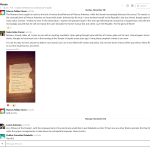
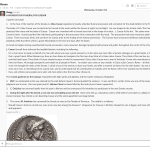
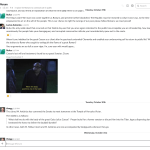
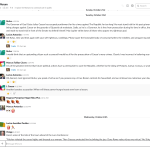
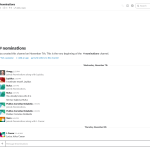
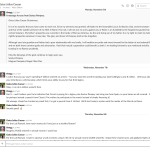
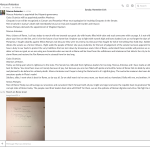
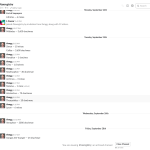
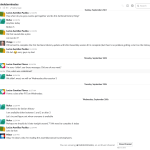
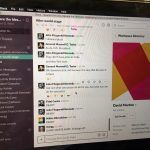


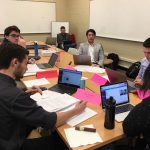
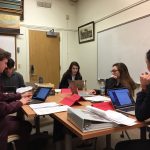
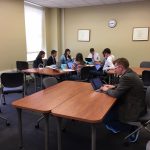
Student’s Perspective
“Slack specifically in this class has been really important because it allows me, as a student, to connect with other students in a way that’s unique to our role, especially in this role playing class because there are different channels. There are people on my team and there are also people on other teams and we have our own channels and are able to talk privately. The technology has been really important because sometimes we are not in the same area. There are updates and messages that pop up before class and that way we are all updated and on the same page and that has been really helpful. I think it’s been especially helpful because its a role playing class in a living learning community. It’s been really nice because we can all comment on different postings. It’s a safe social media space. It’s not public. Our characters can respond to each other in a safe place.”-David Morton
“I originally applied for this class thinking it would be great if I got into it. I heard good things about it from upperclassmen who had taken it so I was very excited to get into a role-playing scenario with ancient history. I used Slack before, not in this scene but just as communication in high school, but I feel like Slack keeps everything needed for the first year seminar separate so you’re not getting a bunch of emails that you have to sift through so you are getting all of your messages in one place and having different channels and different direct messages keeps all the threads very clean and concise. It’s easy to communicate with people. I feel it really helped make the class as unique as it’s supposed to be.”
-Maya Dalton
Instructor’s Perspective
“Slack has made my students’ outside-of-class course experience more lively and immersive than it already was — and has made it more visible to me. Slack has essentially become an extension of my classroom. And an added benefit: my students pay more attention to it than they ever did to my emails! “-T.H.M. Gellar-Goud
Assessment
Definitely keep Slack moving forward.

